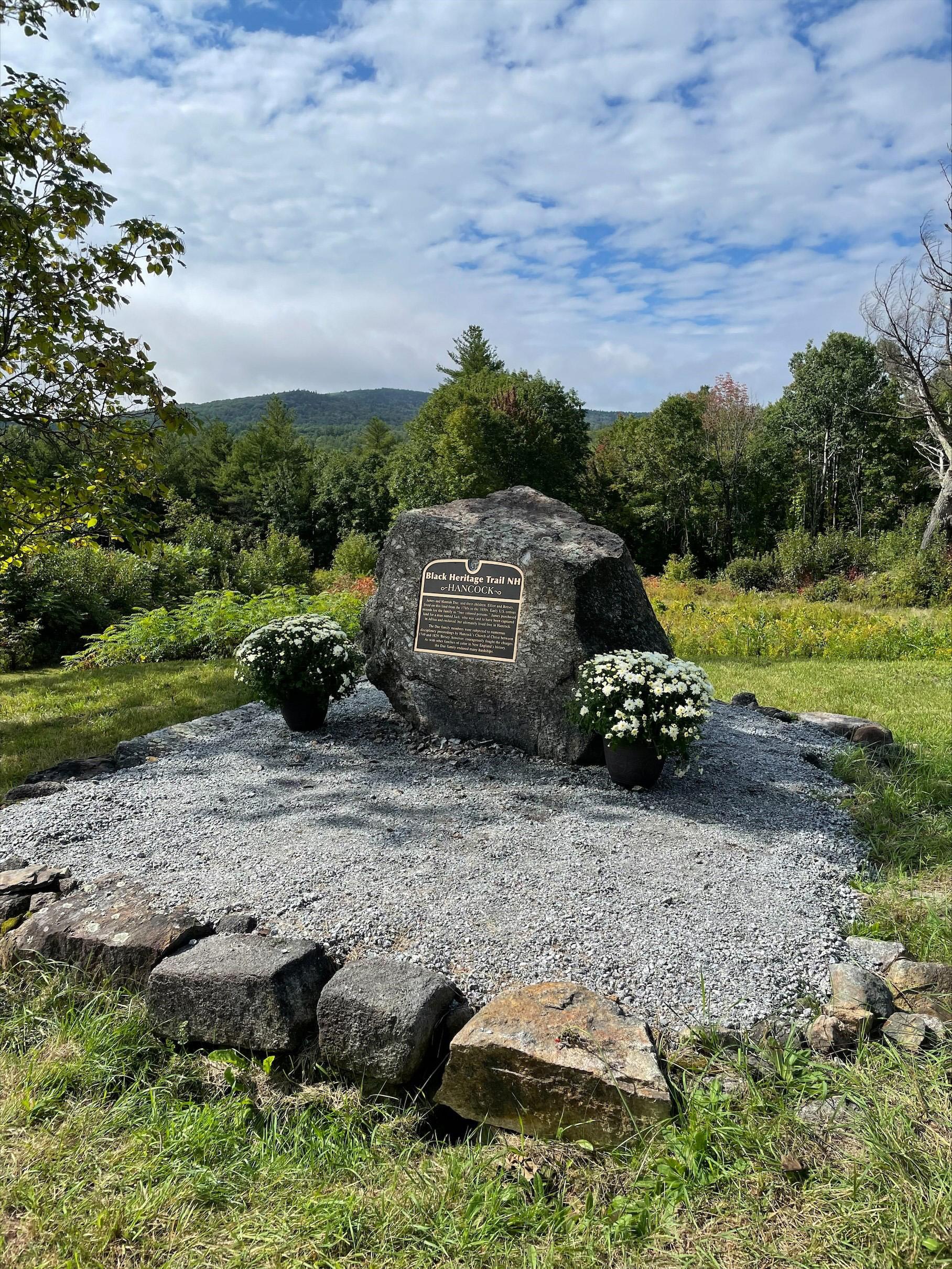
The marker describes the Due family and Jack, a once-enslaved African who gained his freedom and lived in Hancock in the late 1700s and early 1800s. The Due family, identified in early censuses as free people of color, endured many issues with the Church of Christ in Hancock around the same time.
“We are pleased to be able to join forces with JerriAnne Boggis and the Black Heritage Trail of New Hampshire to not only bring the Due story to light, but to also use the marker as a catalyst for ongoing conversations about race and history,” said Jack Savage, president of the Society for the Protection of New Hampshire Forests. “This land came to us as the Welch Family Farm and Forest in recognition of a century of one family’s stewardship, and now we welcome the opportunity to also recognize and share the story of the Due family and their imprint on this land.”
“What little we know about the Jack and the Due family we’ve learned from bits and pieces of history and from those diligent enough to keep digging and interpreting their stories,” said Eric Aldrich, a writer from Hancock. “Communities like Hancock, Milford, Warner, and others throughout the state are learning more about Black history, thanks to the Black Heritage Trail of New Hampshire and its encouragement of people willing to dig deep into these stories and to share them.”
- Learn about the Black Heritage Trail of New Hampshire marker that was added to the property in September 2021.
- Read more about black history at the Welch Family Farm and Forest in this Forest Notes article.
